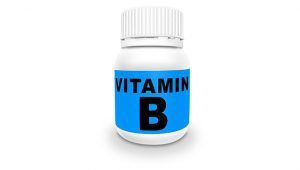Our bodies are complex organisms that require a continuous supply of essential nutrients to generate new cells, fend off diseases, and maintain overall health. Multivitamin supplements can help bridge the nutritional gaps that may arise from our diets.
Do I Need to Take a Supplement?
In theory, a balanced diet should provide all the essential nutrients we need. However, achieving this balance in today’s fast-paced world is often challenging. With our busy lifestyles, many people struggle to prioritize nutritious meals and regular exercise. Stress can exacerbate these issues, leading to poor dietary choices. Additionally, years of soil depletion have diminished the nutrient content of many foods. As a result, supplements become an important option to fill these nutritional voids. When we lack essential nutrients, we risk developing deficiencies that can lead to serious health issues, including cardiovascular diseases, immune system problems, and even cancer.
Who Needs Supplements?
Recent studies suggest that both adults and children can benefit from multivitamin supplements. Here are specific groups that may require additional nutritional support:
- Pregnant women and lactating mothers: These individuals need extra nutrition to support fetal development and breastfeeding.
- Adolescents: Rapid growth periods increase nutritional needs.
- Individuals with nutrient deficiencies: Common deficiencies include calcium, magnesium, iron, zinc, copper, and manganese. For instance, iron deficiency is prevalent among women.
- Smokers: They often have lower levels of Vitamin C.
- Strict vegetarians and older adults: These groups may need to replenish Vitamin B12 to prevent anaemia.
- Women on oral contraceptives or alcoholics: Typically have lower levels of B vitamins and Vitamin C.
- Individuals with kidney disorders: They may have insufficient Vitamin D levels.
Multivitamins typically contain multiple vitamins and minerals rather than just one. Some vitamins work synergistically, enhancing each other’s benefits when taken together:
- Vitamins C and E: Their effectiveness is increased when consumed together.
- Selenium: It enhances the heart-healthy effects of Vitamin E.
- Vitamin B6, B12, and folic acid: These are most beneficial when taken as a combination.
- Calcium and magnesium: These minerals work better together.
Conclusion
While multivitamins can supplement your nutrition, they should not replace a healthy diet. It’s crucial to focus on obtaining nutrients from whole foods whenever possible. Consulting with a healthcare professional is advisable if you suspect you have a deficiency or are considering supplements. They can help determine your specific needs and recommend appropriate products. In summary, multivitamins can play a significant role in maintaining health by filling nutritional gaps in our diets. However, they should be viewed as an addition to—not a substitute for—a balanced diet rich in fruits, vegetables, whole grains, and other nutrient-dense foods.




